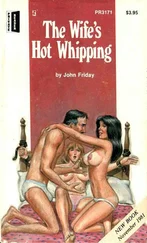Harry Kemelman - Friday The Rabbi Slept Late
Здесь есть возможность читать онлайн «Harry Kemelman - Friday The Rabbi Slept Late» весь текст электронной книги совершенно бесплатно (целиком полную версию без сокращений). В некоторых случаях можно слушать аудио, скачать через торрент в формате fb2 и присутствует краткое содержание. Жанр: Детектив, на английском языке. Описание произведения, (предисловие) а так же отзывы посетителей доступны на портале библиотеки ЛибКат.
- Название:Friday The Rabbi Slept Late
- Автор:
- Жанр:
- Год:неизвестен
- ISBN:нет данных
- Рейтинг книги:5 / 5. Голосов: 1
-
Избранное:Добавить в избранное
- Отзывы:
-
Ваша оценка:
- 100
- 1
- 2
- 3
- 4
- 5
Friday The Rabbi Slept Late: краткое содержание, описание и аннотация
Предлагаем к чтению аннотацию, описание, краткое содержание или предисловие (зависит от того, что написал сам автор книги «Friday The Rabbi Slept Late»). Если вы не нашли необходимую информацию о книге — напишите в комментариях, мы постараемся отыскать её.
Friday The Rabbi Slept Late — читать онлайн бесплатно полную книгу (весь текст) целиком
Ниже представлен текст книги, разбитый по страницам. Система сохранения места последней прочитанной страницы, позволяет с удобством читать онлайн бесплатно книгу «Friday The Rabbi Slept Late», без необходимости каждый раз заново искать на чём Вы остановились. Поставьте закладку, и сможете в любой момент перейти на страницу, на которой закончили чтение.
Интервал:
Закладка:
"She was a member of the group. We were all friends. If any one of us had a party or an affair, they would invite her just as we did."
The rabbi looked at Reich, who said, "I'd say she was closer to them. We met the Weinbaums through Ben and Myra. They were particularly friendly."
"Yes, perhaps that's so," Schwarz admitted. "What of it?"
"And it was in your car that she drove up to the skiing area?" asked the rabbi.
"Yes, although it just worked out that way. What are you driving at?"
"I am suggesting that she was essentially your guest, and that you felt a greater sense of responsibility for her than did Mr. Reich."
Mr. Wasserman leaned forward.
"Yes, I suppose that's so," Schwarz admitted again.
"Then in driving her home, wasn't Mr. Reich in a sense doing you a favor?"
"He was doing himself a favor too. He had a bad cold and wanted to get home."
"Had he made any suggestions to that effect before Mrs. Weinbaum received the call?"
"No, but we all knew he wanted to get home."
"If the call had not come, do you think he would have asked for your car?"
"Probably not."
"Then I think we may leave it that in driving Mrs. Weinbaum home he was doing you a favor, however advantageous it may have been to himself."
"Well, I don't see that it makes any difference. What of it?"
"Just this, that in the one case he would be in the position of a borrower, but in the second case he is in effect your agent, and a different set of rules applies. As a borrower, the responsibility of returning your car in good condition rests squarely on him, and to avoid liability he would have to prove that there was a flaw in the car and also that there was no negligence on his part. Furthermore, it would be his responsibility to make sure that the car was in good condition when he took it. As an agent, on the other hand, he has a right to assume that the car was in good condition and the burden of proof rests with you. It is you who has to prove that he was grossly negligent." Wasserman smiled.
"I don't see that it makes much difference. I feel that in either case he was grossly negligent. And I can prove it. There wasn't a drop of oil in the car. That's what the garage mechanic said. Now, he let the oil run dry and that is gross negligence."
"How would I know the oil was low?" demanded Reich.
Until now, both men had addressed themselves to the rabbi, talking to each other through him. But now Schwarz swung around and facing Reich directly, said, 'You stopped for gas, didn't you?"
Reich also turned in his chair. "Yes, I stopped for gas. When I got into the car I noticed you had less than half a tank, so after we'd been driving for about an hour, I pulled into a station and told him to fill her up."
"But you didn't tell him to check the oil," said Schwarz.
"No, and I didn't tell him to check the water in the radiator or in the battery or the pressure in the tires. I had a nervous, hysterical woman on the seat beside me who could hardly wait until he finished pumping the gas. Why did I have to check everything out? It was practically a new car. It wasn't a jalopy."
"And yet Sarah told Myra that she mentioned the oil to you."
"Sure, after we had driven on about five or ten miles. I asked her why should I, and she said you had on the way up and that you had put in a couple of quarts. So I said, Then certainly we don't need any, and that ended that. She dozed off and didn't wake up until we got stalled and she thought we were home."
"Well, I would say it's customary when taking a long trip to check oil and water every time you stop," insisted Schwarz.
"Just a minute, Mr. Schwarz," said the rabbi, "I am no mechanic, but I don't understand why a new car would need a couple of quarts of oil."
"Because there was a small leak in the seal, but it was nothing serious. I noticed a few drops of oil on the garage floor and spoke to Ai Becker about it. He said he'd take care of it but that I could drive all right until I got around to bringing it in."
The rabbi looked at Reich to see if he had anything to say in reply, and then leaned back in his swivel chair and considered. Finally, he straightened up with a jerk of his shoulders. He patted the books on the desk. "These are two of the three volumes of the Talmud that deal with the general subject of what we would call torts. The subject is treated very fully. This first volume treats of the general causes of damages, and the section that concerns an ox that gores, for example, goes on for about forty pages. A general principle is evolved which the rabbis applied broadly to all kinds of cases. It is the basic distinction they made between tarn and muad, that is, between the docile ox and the ox that has already earned a reputation as a vicious beast by virtue of having gored on several occasions in the past. The owner of the latter was felt to be far more responsible in the event of a goring than the former, since he already had had warning and should have taken special precautions." He glanced at Mr. Wasserman, who nodded in corroboration.
The rabbi got up from behind his desk and began to pace the floor. His tone took on the singsong quality traditional with Talmudists as he followed the thread of the argument. "Now in this case, you knew your car leaked oil. And I suggest, that, at least while it was being driven, it leaked more than just a few drops, since you found it necessary to add two full quarts on the trip up. If Mr. Reich had been a borrower-and we come now to this volume which deals with the subject of borrowing as well as the law of agency-if Mr. Reich, for example, had said that he did not feel well and wanted to go home and had asked to borrow your car for the trip, it would have been his responsibility either to ask you if it were in good condition, or himself to check it. And if he failed to do so, even if the circumstances had been precisely the same as they were, then he would have been responsible and liable for the damage done. But we have already agreed that he was not a borrower but essentially your agent, and hence the responsibility was yours to inform him that the car leaked oil and to watch and see that it did not drop below the safe level."
"Just a minute, rabbi," said Schwarz. "I didn't have to warn him personally. The car has a built-in warning device-the oil light. When a man drives a car, he's supposed to watch his instruments, and if he had, the red light would have told him he was getting dangerously low."
The rabbi nodded. "That is a good point. Mr. Reich?"
"As a matter of fact, the light did go on," he said. "But when it did we were on the open road without a station in sight, and before I could find one we'd stalled."
"I see," said the rabbi.
"But according to the mechanic, he should have smelled something burning long before," Schwarz insisted.
"Not if his nose was stuffed up with a bad cold. And Mrs. Weinbaum, you remember, was asleep." The rabbi shook his head. "No, Mr. Schwarz, Mr. Reich did only what the average driver would have done under the existing road conditions. Therefore, he could not be considered negligent, and if not negligent, then not responsible."
The finality in his tone indicated that the hearing was over. Reich was the first to rise. "This has been a revelation to me, rabbi," he said in a low voice. The rabbi acknowledged his thanks.
Reich turned uncertainly to Schwarz, hoping he would make some gesture of reconciliation, but he remained seated, his eyes focused on the floor as he rubbed the palms of his hands together in vexation.
Reich waited an awkward moment, then said, "Well, I'll be going." At the door he paused. "I didn't see your car in the parking lot, Jacob. Can I give you a lift?"
"Yes, I walked," said Wasserman, "but I think I'd like a ride home."
Читать дальшеИнтервал:
Закладка:
Похожие книги на «Friday The Rabbi Slept Late»
Представляем Вашему вниманию похожие книги на «Friday The Rabbi Slept Late» списком для выбора. Мы отобрали схожую по названию и смыслу литературу в надежде предоставить читателям больше вариантов отыскать новые, интересные, ещё непрочитанные произведения.
Обсуждение, отзывы о книге «Friday The Rabbi Slept Late» и просто собственные мнения читателей. Оставьте ваши комментарии, напишите, что Вы думаете о произведении, его смысле или главных героях. Укажите что конкретно понравилось, а что нет, и почему Вы так считаете.












